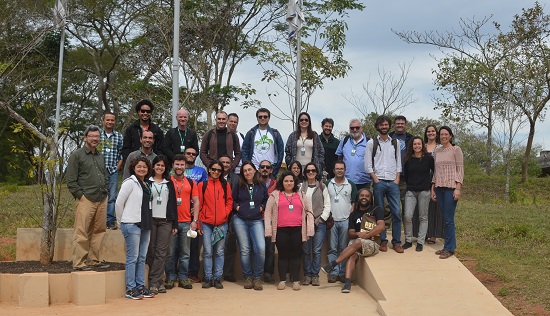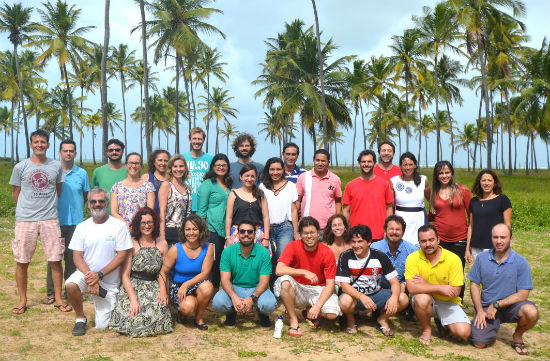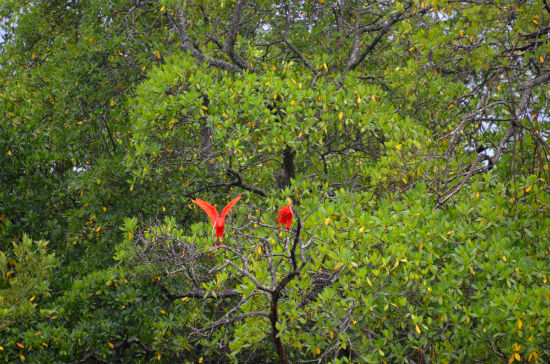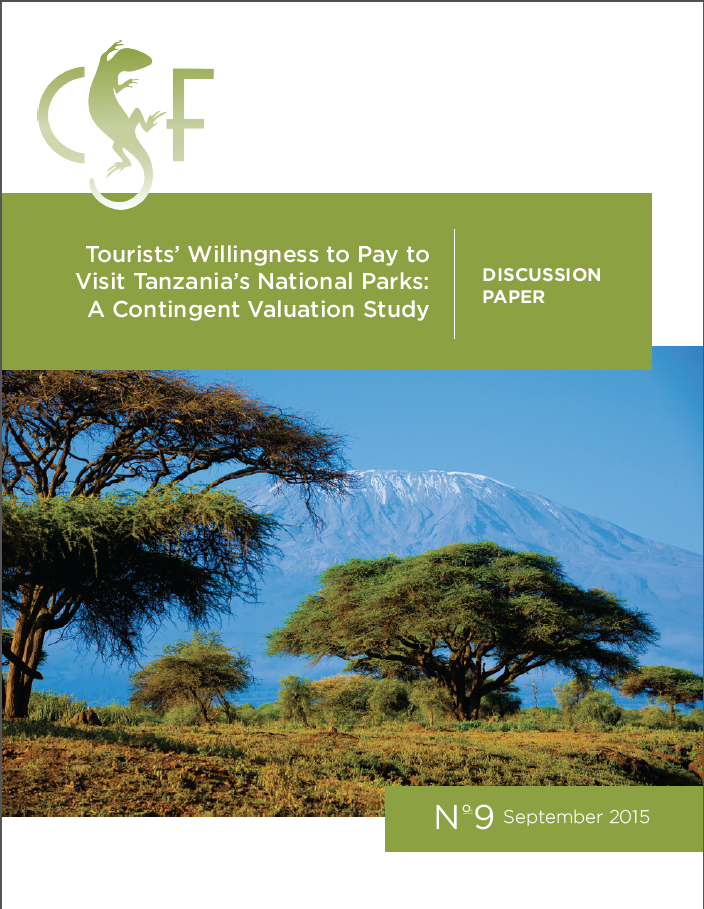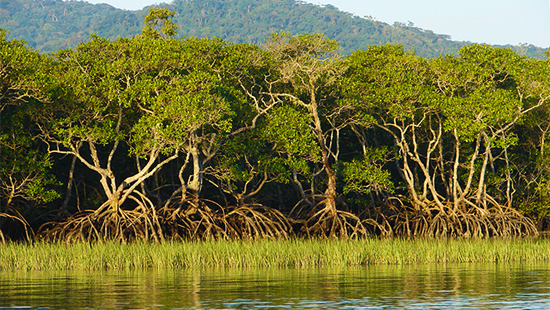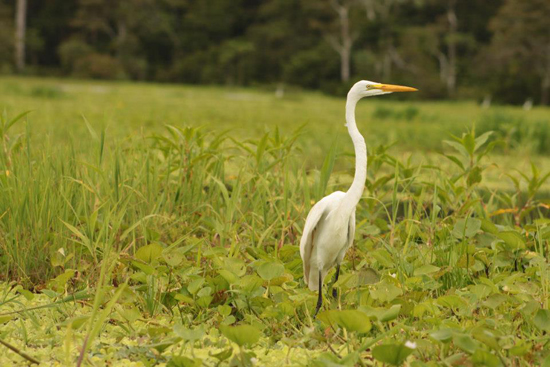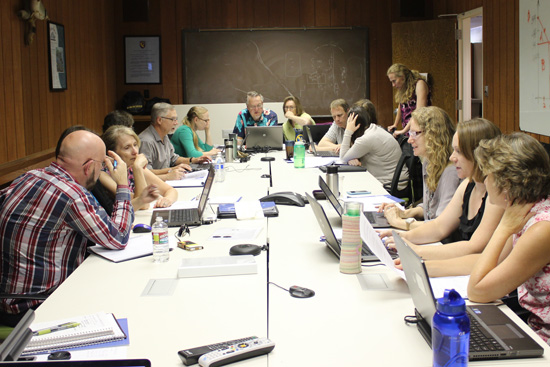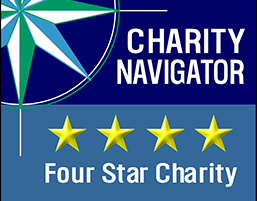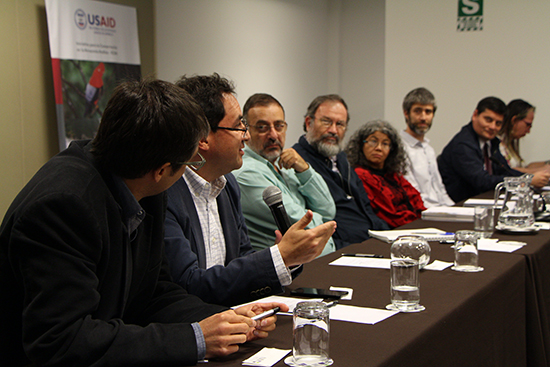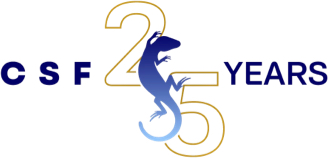News
In early August, CSF and the Chico Mendes Institute for Conservation of Biodiversity (ICMBio), in partnership with the United States Forest Service (USFS), held a four day training on Economic and Financial Feasibility of Supporting Services for Visitation of Conservation Units (Unidades de Conservação - UCs) at the Biodiversity National Academy (ACADEBio), in Iperó, Brazil.
Course participants and instructors.
Scarlet ibis (Eudocimus ruber) in a mangrove treeIn May 2016, staff from the CSF Brazil team travelled to the Salgado Paraense region, located on the northern coast of the state of Pará. Their goal was to collect important information as part of our project on the sustainability of mangrove ecosystems. This project seeks to sensitize the government and society to the benefits these ecosystems provide, and make recommendations about economic instruments that could be used to promote financial sustainability of protected areas.
Last year, CSF collaborated with Tanzania National Parks(TANAPA) on an analysis to help the country set its park entrance fees. The study looked at the relationship between expected visitation and entrance fee levels, and found that price sensitivity varies widely by park. The study’s recommendations considered these differences, as well as visitors’ perceptions about a range of issues related to fees, management decisions, and park conditions. Implementation of the study’s recommendations would generate a predicted 25% increase in revenues – providing much needed funds for park management – without negatively effecting visitation.
Brazilian mangroves. Photo credit: Freya Fennwood .
Mangroves are a key ecosystem contributing to biodiversity and flood protection on a local and regional level. Unfortunately most people are unaware of the ecosystem services provided by mangroves. As a result, overfishing and pollution threaten this critical habitat.
Photo credit: Anita Escobedo.
For this month's Donor Spotlight series, I sat down with Jon Mellberg, a Bay Area-based contributor who has supported CSF's videos on economic valuation, part of our popular animated video series. He recently spent some time with me to discuss his background, why he supports CSF and even the best way to calculate the economic value of an elephant!
Aja: Can you tell me a little about your career to date?
Course coordinators Margaret Duncan, Niki Gribi, Craig Martz, and Kim Bonine.CSF traveled to Sacramento, CA in October to lead a three-day training for the California Department of Fish and Wildlife (CDFW). Participants included 28 members of the CDFW staff, and 6 members of the California Fish and Game Commission (FGC). We were able to reach 16 staff in field offices across California using remote access technology and our online workspace.
CSF's sound fiscal management practices and commitment to accountability and transparency have earned it a 4 out of 4 star rating from Charity Navigator, America’s largest independent charity evaluator.
Este 19 y 20 de agosto once becarios del Programa de Becas para el Desarrollo de Investigaciones Económicas Aplicadas para la Conservación en la Amazonía Andina presentaron, junto con sus tutores, los resultados de sus investigaciones a participantes de entidades de gobierno, ONG y universidades.

